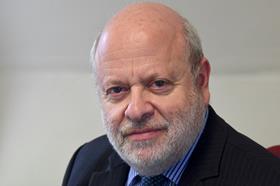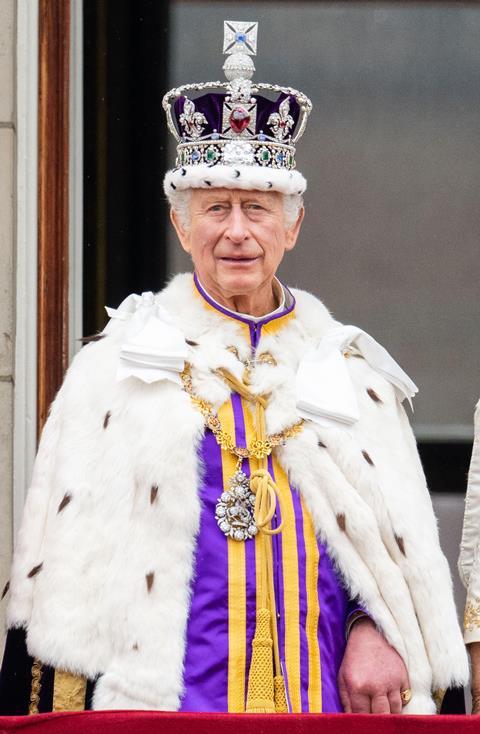(1) First, I wish that the care and mass teamwork which were in evidence to ensure that a national symbolic event passed off with such magnificence were instead brought together to guarantee something to improve affairs in the real world. Obviously, as a lawyer, that would be to ensure that our collapsing legal system – unrepaired court buildings, derisory legal aid fees and eligibility levels, and backlogs that deny justice – are returned to a condition where we can be proud of the state of justice rather than of gleaming red coats on shining horses, or processions of robes trimmed with ermine.

(2) Next, while recognised that symbols like the coronation are important, they should also have a consistent meaning. The king’s opening words that ‘I come not to be served, but to serve’ were excellent. But they were drowned out by the opulence of the occasion: crowns, golden coach, balcony wave. I was left with the impression of grandeur and excess, not service.
We lawyers also come to serve, and not be served, in respect both of our clients and the legal system. But if we were to over-awe with grandeur those we first meet in our professional lives, it would not fit the concept of being at their service. I assume that we would prefer to show in a real way – through tone, dress, manner, voice and physical setting – that we care for justice to done.
(3) Interestingly, the Coronation Oath sworn by the king is sprinkled with references to the law and justice. I counted five separate oaths that the king swears. Three of them concern religion, but the other two relate to the law. So he solemnly promises and swears ‘to govern the Peoples of the United Kingdom of Great Britain and Northern Ireland, your other Realms and the Territories to any of them belonging or pertaining, according to their respective laws and customs’ and also to ‘cause Law and Justice, in Mercy, to be executed in all your judgements’.

Now, even though we know that he has no power to do any of these things, it is clear that the law is an important part of the symbolism. We lawyers should say ‘Hurray!’.
But although the religious promises are reflected repeatedly in the coronation display – the Archbishop and bishops who lead the service are the best example – there is no ritual participation by any judge or lawyer. I can discover the participation of only two lawyers in the service. First, a Scottish solicitor - Lady Elish Angiolini, the former Lord Advocate of Scotland - performed the first recognition of the king. And Baroness (Helena) Kennedy carried the Queen Consort’s Rod. But their roles were not legal ones.
If values and oaths are to have meaning, they should be reflected symbolically in the display, too. There should be formal participation by judges or lawyers as judges or lawyers.
(4) To continue with the theme of consistency, I wish that generally there were more coherence between our symbols and the world we inhabit. This is the first coronation that I have experienced. Doubtless there has always been a vast chasm between the display of the one, and the lofty values that it promotes, and the real lives of the population. Maybe that is part of the point.
In our world, to reflect the majesty of the law, we dress up our judges in wigs and gowns on ceremonial occasions, and promote a certain language, dress and tone in the courts. That serves a real purpose, of guaranteeing the proper administration of justice, even if we could easily ditch some of the flummery and achieve the same purpose (as other jurisdictions do).
But the amount of judicial flummery that we have to ditch in order to continue to serve justice is as nothing compared to the amount of regal flummery on display at the coronation. The excess seems dangerous because of its disassociation with purpose. I can understand the reason for a constitutional monarchy, whether I personally support it or not, but do we need so much ostentation? (For those who say it brings in the tourists, republican France attractions tens of million more tourists than we do.)
(5) And, finally, many have thought it wrong that peaceful protestors were arrested, including now the police themselves. The police have been bullied by politicians and the press to crack down on recent protests, and have to enforce much stricter new laws. But the occasion would have been more magnificent and more just if peaceful protestors had not been arrested and had been allowed to have their say. I suspect many people wish that we as a society would become strong enough to allow people to voice dissent openly, even at our most preciously held concepts, without the threat of arrest.
Jonathan Goldsmith is Law Society Council member for EU & International, chair of the Law Society’s Policy & Regulatory Affairs Committee and a member of its board. All views expressed are personal and are not made in his capacity as a Law Society Council member, nor on behalf of the Law Society































3 Readers' comments